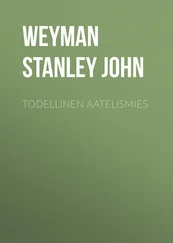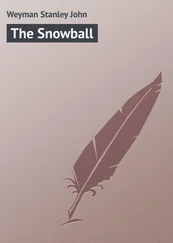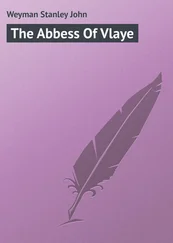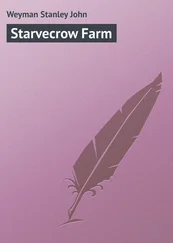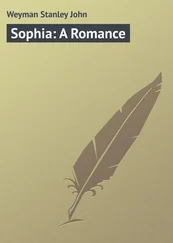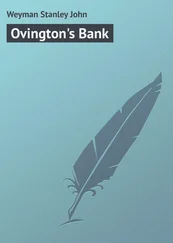Stanley Weyman - Chippinge Borough
Здесь есть возможность читать онлайн «Stanley Weyman - Chippinge Borough» — ознакомительный отрывок электронной книги совершенно бесплатно, а после прочтения отрывка купить полную версию. В некоторых случаях можно слушать аудио, скачать через торрент в формате fb2 и присутствует краткое содержание. Жанр: foreign_prose, на английском языке. Описание произведения, (предисловие) а так же отзывы посетителей доступны на портале библиотеки ЛибКат.
- Название:Chippinge Borough
- Автор:
- Жанр:
- Год:неизвестен
- ISBN:нет данных
- Рейтинг книги:4 / 5. Голосов: 1
-
Избранное:Добавить в избранное
- Отзывы:
-
Ваша оценка:
- 80
- 1
- 2
- 3
- 4
- 5
Chippinge Borough: краткое содержание, описание и аннотация
Предлагаем к чтению аннотацию, описание, краткое содержание или предисловие (зависит от того, что написал сам автор книги «Chippinge Borough»). Если вы не нашли необходимую информацию о книге — напишите в комментариях, мы постараемся отыскать её.
Chippinge Borough — читать онлайн ознакомительный отрывок
Ниже представлен текст книги, разбитый по страницам. Система сохранения места последней прочитанной страницы, позволяет с удобством читать онлайн бесплатно книгу «Chippinge Borough», без необходимости каждый раз заново искать на чём Вы остановились. Поставьте закладку, и сможете в любой момент перейти на страницу, на которой закончили чтение.
Интервал:
Закладка:
The other was about to answer when one of the courts, in which a case of some difficulty had caused a late sitting, discharged its noisy, wrangling, perspiring crowd. The two stepped aside to avoid the evasion, and did not résumé their talk. Wathen's friend made his way out by the main door near which they had been standing; while the sergeant, with looks which mirrored the gloom that a hundred Tory faces wore on that day, betook himself to the robing-room. There he happened upon another unfortunate. They fell to talking, and their talk ran naturally upon the Chancellor, upon old Grey's folly in letting himself be led by the nose by such a rogue; finally, upon the mistakes of their own party. They differed on the last topic, and in that natural and customary state we may leave them.
II
THE SPIRIT OF THE STORM
The Court of Chancery, the preserve for nearly a quarter of a century of Eldon and Delay, was the farthest from the entrance on the right-hand side of the Hall-a situation which enabled the Chancellor to pass easily to that other seat of his labours, the Woolsack. Two steps raised the Tribunals of the Common Law above the level of the Hall. But as if to indicate that this court was not the seat of anything so common as law, but was the shrine of that more august conception, Patronage, and the altar to which countless divines of the Church of England looked with unwinking devotion, a flight of six or eight steps led up to the door.
The privacy thus secured had been much to the taste of Lord Eldon. Doubt and delay flourish best in a close and dusty atmosphere; and if ever there was a man to whom that which was was right, it was "Old Bags." Nor had Lord Lyndhurst, his immediate successor, quarrelled with an arrangement which left him at liberty to devote his time to society and his beautiful wife. But the man who now sat in the marble chair was of another kind from either of these. His worst enemy could not lay dulness to his charge; nor could he who lectured the Whitbreads on brewing, who explained their art to opticians, who vied with Talleyrand in the knowledge of French literature, who wrote eighty articles for the first twenty numbers of the "Edinburgh Review," be called a sluggard. Confident of his powers, Brougham loved to display them; and the wider the arena the better he was pleased. His first sitting had been graced by the presence of three royal dukes, a whole Cabinet, and a score of peers in full dress. Having begun thus auspiciously, he was not the man to vegetate in the gloom of a dry-as-dust court, or to be content with an audience of suitors, whom equity, blessed word, had long stripped of their votes.
Again and again during the last six months, by brilliant declamations or by astounding statement, he had filled his court to the last inch. The lions in the Tower, the tombs in the Abbey, the New Police-all were deserted; and countryfolk flocked to Westminster, not to hear the judgments of the highest legal authority in the land, but to see with their own eyes the fugleman of reform-the great orator, whose voice, raised at the Yorkshire election, had found an echo that still thundered in the ears and the hearts of England.
"I am for Reform!" he had said in the castle yard of York; and the people of England had answered: "So are we; and we will have it, or-"
The lacuna they had filled, not with words, but with facts stronger than words-with the flames of Kentish farmhouses and Wiltshire factories; with political unions counting their numbers by scores of thousands; with midnight drillings and vague and sullen murmurings; above all, with the mysterious terror of some great change which was to come-a terror that shook the most thoughtless and affected even the Duke, as men called the Duke of Wellington in that day. For was not every crown on the Continent toppling?
Vaughan did not suppose that, in view of the startling event of the day, he would be admitted. But the usher, who occupied a high stool outside the great man's door, no sooner read his card than he slid to the ground. "I think his lordship will see you, sir," he murmured blandly; and he disappeared.
He was back on the instant, and, beckoning to Vaughan to follow him, he proceeded some paces along a murky corridor, which the venerable form of Eldon seemed still to haunt. Opening a door, he stood aside.
The room which Vaughan saw before him was stately and spacious, and furnished with quiet richness. A deep silence, intensified by the fact that the room had no windows, but was lighted from above, reigned in it-and a smell of law-calf. Here and there on a bookcase or a pedestal stood a marble bust of Bacon, of Selden, of Blackstone. And for a moment Vaughan fancied that these were its only occupants. On advancing further, however, he discovered two persons, who were writing busily at separate side-tables; and one of them looked up and spoke.
"Your pardon, Mr. Vaughan!" he said. "One moment, if you please!"
He was almost as good as his word, for less than a minute later he threw down the pen, and rose-a gaunt figure in a black frockcoat, and with a black stock about his scraggy neck-and came to meet his visitor.
"I fear that I have come at an untimely moment, my lord," Vaughan said, a little awed in spite of himself by what he knew of the man.
But the other's frank address put him at once at his ease. "Politics pass, Mr. Vaughan," the Chancellor answered lightly, "but science remains." He did not explain, as he pointed to a seat, that he loved, above all things, to produce startling effects; to dazzle by the ease with which he flung off one part and assumed another.
Henry Brougham-so, for some time after his elevation to the peerage, he persisted in signing himself-was at this time at the zenith of his life, as of his fame. Tall, but lean and ungainly, with a long neck and sloping shoulders, he had one of the strangest faces which genius has ever worn. His clownish features, his high cheek-bones, and queer bulbous nose are familiar to us; for, something exaggerated by the caricaturist, they form week by week the trailing mask which mars the cover of "Punch." Yet was the face, with all its ugliness, singularly mobile; and the eyes, the windows of that restless and insatiable soul, shone, sparkled, laughed, wept, with incredible brilliance. That which he did not know, that which his mind could not perform-save sit still and be discreet-no man had ever discovered. And it was the knowledge of this, the sense of the strange and almost uncanny versatility of the man, which for a moment overpowered Vaughan.
The Chancellor seated himself opposite his visitor, and placed a hand on each of his wide-spread knees. He smiled.
"My friend," he said, "I envy you."
Vaughan coloured shyly. "Your lordship has little cause," he answered.
"Great cause," was the reply, "great cause! For as you are I was-and," he chuckled, as he rocked himself to and fro, "I have not found life very empty or very unpleasant. But it was not to tell you this that I asked you to wait on me, Mr. Vaughan, as you may suppose. Light! It is a singular thing that you at the outset of your career-even as I thirty years ago at the same point of mine-should take up such a parergon, and alight upon the same discovery."
"I do not think I understand."
"In your article on the possibility of the permanence of reflection-to which I referred in my letter, I think?"
"Yes, my lord, you did."
"You have restated a fact which I maintained for the first time more than thirty years ago! In my paper on colours, read before the Royal Society in-I think it was '96."
Vaughan stared. His colour rose slowly. "Indeed?" he said, in a tone from which he vainly strove to banish incredulity.
"You have perhaps read the paper?"
"Yes, I have."
The Chancellor chuckled. "And found nothing of the kind in it?" he said.
Читать дальшеИнтервал:
Закладка:
Похожие книги на «Chippinge Borough»
Представляем Вашему вниманию похожие книги на «Chippinge Borough» списком для выбора. Мы отобрали схожую по названию и смыслу литературу в надежде предоставить читателям больше вариантов отыскать новые, интересные, ещё непрочитанные произведения.
Обсуждение, отзывы о книге «Chippinge Borough» и просто собственные мнения читателей. Оставьте ваши комментарии, напишите, что Вы думаете о произведении, его смысле или главных героях. Укажите что конкретно понравилось, а что нет, и почему Вы так считаете.

